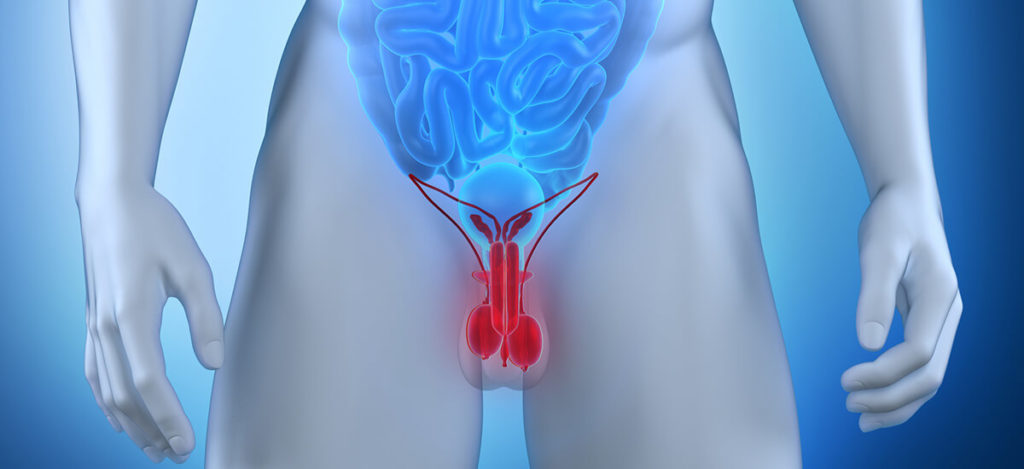RATIONALE: Video-assisted surgery followed by radiation therapy may be an effective treatment in patients whose poor heart and lung function make them high risk for standard surgery.
RATIONALE: Video-assisted surgery followed by radiation therapy may be an effective treatment in patients whose poor heart and lung function make them high risk for standard surgery. PURPOSE: Phase II trial to study the effectiveness of video-assisted surgery followed by radiation therapy in treating patients with stage I non-small cell lung cancer and poor heart and lung function. Condition: – stage I non-small cell lung cancer- squamous cell lung cancer- large cell lung cancer- adenocarcinoma of the lung- bronchoalveolar cell lung cancerStudy Type: InterventionalStudy Design: Treatment Official Title: Phase II Study of Video-Assisted Thoracoscopic Wedge Resection (VAR) Followed by Radiotherapy in Patients With Stage I Non-Small Cell Lung Cancer and Cardiopulmonary Dysfunction Further Study Details: OBJECTIVES:Determine the feasibility of video-assisted thoracoscopic wedge resection (VAR) followed by radiotherapy in patients with stage I non-small cell lung cancer and cardiopulmonary dysfunction. Determine the incidence of locoregional recurrence in patients treated with this regimen. Determine the overall and disease-free survival in patients treated with this regimen. Determine the technical feasibility of ipsilateral lymph node sampling and complete resection with VAR in these patients. Determine the incidence of conversion to open thoracotomy in these patients. Determine the short- and long-term complications associated with VAR in these patients. Determine the toxicity of adjuvant radiotherapy after VAR in these patients. OUTLINE: This is a multicenter study.Patients undergo video-assisted thoracoscopic wedge resection. Surgeons attempt sampling and identification of all ipsilateral, mediastinal, and hilar lymph nodes. When accessible, lobar lymph nodes must also be sampled. If the tumor margins are positive, further resection of the margins must be attempted. Open thoracotomy may be required for technical reasons. Eligible patients begin radiotherapy 2-8 weeks postoperatively. Patients with complete resection undergo radiotherapy 5 days a week for 5.6 weeks. Patients with incomplete resection undergo radiotherapy 5 days a week for 6.6 weeks. Patients are followed every 3 months for 2 years, every 6 months for 3 years, and then annually thereafter.PROJECTED ACCRUAL: Approximately 66 patients will be accrued for this study within approximately 22 months. Eligibility Ages Eligible for Study: 18 Years and above, Genders Eligible for Study: Both Criteria DISEASE CHARACTERISTICS:Known or suspected, single, peripheral, stage T1 N0 M0 lung tumor Tumor must not be identifiable by bronchoscopy Bronchoscopically visible cancer or bronchial distortions considered related to tumor Positive cytology by bronchoscopy allowed if no gross abnormality visible Mediastinoscopy required for nodes greater than 1 cm No pleural effusions No metastatic or N2 disease on CT scan Lesion must be accessible for video-assisted thoracoscopic wedge resection High cardiopulmonary risk for thoracotomy with at least 1 of the following criteria: FEV1 less than 40% predicted DLCO less than 50% predicted Supplemental oxygen requirement Chronic PaCO2 greater than 45 mm Hg Maximum oxygen consumption (VO2 max) less than 15 mL/kg/min Patients who appear at high risk for non-pulmonary reasons (e.g., patients who are elderly or with renal or cardiac failure) may be eligible only if VO2 max or other criteria above are met Eligible for radiotherapy after completion of wedge resection if histologic documentation of non-small cell lung cancer, including any of the following subtypes: Squamous cell carcinoma Adenocarcinoma Bronchoalveolar cell Large cell anaplastic carcinoma Cytology from bronchial washings and transthoracic needle aspiration not acceptable [1] Cancer and Leukemia Group B[2] National Cancer Institute (NCI)[3] Eastern Cooperative Oncology GroupWestmead Hospital, Westmead, New South Wales, 2145, Australia; Recruiting Richard Kefford, MD, PhD 61-2-9845-6033
All content and media on the HealthEngine Blog is created and published online for informational purposes only. It is not intended to be a substitute for professional medical advice and should not be relied on as health or personal advice. Always seek the guidance of your doctor or other qualified health professional with any questions you may have regarding your health or a medical condition. Never disregard the advice of a medical professional, or delay in seeking it because of something you have read on this Website. If you think you may have a medical emergency, call your doctor, go to the nearest hospital emergency department, or call the emergency services immediately.







